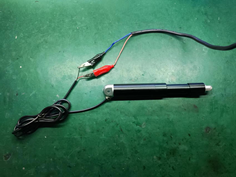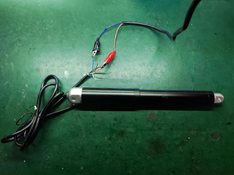Essential Safety Guidelines for Using Electric Linear Actuators
When working with electric linear actuators, safety and correct operation are critical to ensuring optimal performance and prolonging the service life of your equipment. Whether you’re integrating actuators into campervan roof lift systems, awning automation, or marine hatch controls, understanding proper handling, installation, and operation protocols is essential.
In this article, we’ll share professional guidelines on how to safely operate and maintain electric actuators, helping you avoid equipment damage and operational hazards.
Why Safety Matters in Linear Actuator Applications
Linear actuators are precision devices designed for controlled linear motion in diverse fields like campervans, boats, awnings, and industrial machinery. Incorrect handling or installation can lead to mechanical failures, safety risks, or reduced lifespan.
Our waterproof, compact actuators — rated IP66/IP67 — are widely used in mobile outdoor environments where exposure to rain, dust, and vibration is common. Following correct safety protocols is essential for smooth, safe operation.
Electric Linear Actuator Safety Operation Guide
Keep Hands Clear of Moving Parts
Never insert fingers or objects into the actuator's movement range to prevent injury.
Ensure Obstacle-Free Movement Space
Before operation, verify the surrounding area is clear of any obstructions that may block actuator motion.
Check Fastenings Before Use
Ensure all connecting components are securely tightened and properly aligned before each operation.
Immediately Stop Operation if Abnormalities Occur
In case of unusual sounds, slowdowns, or malfunctions, cut the power immediately and consult a technician for inspection.
Follow Correct Waterproof Usage Standards
Different actuator models have specific IP waterproof ratings. Always comply with recommended usage conditions to prevent damage.
Proper Installation and Wiring Procedures
Power Connection
Connect the actuator's black wire to negative and red wire to positive. Reversing the polarity will reverse motion direction.

For Hall sensor-equipped actuators:
Brown & Blue wires = Power positive & negative
Green = Hall A
White = Hall B
Red = Hall positive
Black = Hall negative
Control Operation
Use the matched controller to initiate and control actuator extension or retraction.
Disconnect Power After Use

Always cut power supply after completing operations to prevent voltage instability or unnecessary energy consumption.
Power Supply Capacity
Ensure your DC power supply meets the actuator’s rated voltage and current load. Refer to this recommended power table:
Actuator Model | Max Power (Single Unit) | Recommended Power Supply |
ANT26 | 14.5W | ≥14.5W |
ANT35 | 50W | ≥50W |
ANT38 | 50W | ≥50W |
ANT52 | 160W | ≥160W |
Important Usage Precautions
Operating Voltage: 12V/24V DC only. Low voltage (≤9/19V) reduces lifting force; high voltage (≧15/30V) risks motor damage or burnout.
Confirm Installation Space: Ensure that actuator installation dimensions match your equipment’s design space.
Avoid Overloading: Exceeding rated loads can damage internal gears. Some models offer over-current protection— others should be equipped with fuses and current monitoring devices.
Avoid Lateral Forces: Actuators perform linear motion. Any side force can cause premature wear or failure.
Environment& Temperature Limits:Storage: -40°C to 70°C Operation: -20°C to 60°C
Disconnect Power at Full Extension: If no limit switches are present, avoid running actuators into hard stops at full extension.
Looking for durable, waterproof actuators for your next project?
Contact us today for OEM/ODM services and custom actuator solutions.
info@sito-motor.com | 🌐www.antuator.com/www.antuatorlinear.com